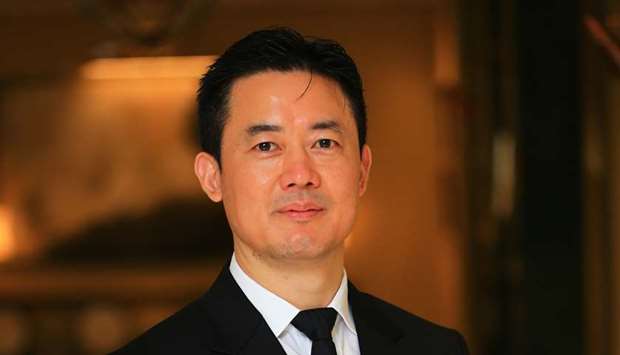Leading up to the 2022 FIFA World Cup in Qatar, a senior Huawei official has vouched for the company’s capability to provide the best products and services that will ensure a stable and secured network, making it a one-of-its-kind tournament.
“We are going to provide end-to-end solution capability that Huawei has to offer, including core network and the network assurance experience and expertise during the World Cup,” Huawei Middle East president Charles Yang has said.
He added that Huawei will also provide what it described as a “superior and revolutionary experience” for both the audience and media, combining its technologies in 5G, AR, VR, and AK video to the stadiums and the games.
Yang said they will also work with their partners and customers in Qatar to roll out the City Intelligent Twins IoC and build Qatar Cloud to provide high-level assurance on network security and data sovereignty.
He noted that the City Intelligent Twins is a smart platform designed for city governments by Huawei, clients and partners. It is based on the cloud, and centred at AI, and supports full-scenario collaboration, full-system collaboration and continuous evolution.
According to Yang, Huawei is also keen to support Qatar’s industry digitisation, as well as other countries in the region, with an emphasis on 5G, talent development, and tackling cybersecurity challenges.
"In Qatar, we have mainly four programmes, the first one is the Seeds for the Future, which was launched in 2017 and in 2020, we launched this jointly with CRA (Communications Regulatory Authority). Over the past four years, it has been attended by 73 university students and 40 of them have been selected to travel to China to enjoy learning experience at the Huawei headquarters,” he said.
The second programme, Yang noted, is an ICT competition launched jointly with the Ministry of Education and Higher Education in 2017.
He said over the past four years, more than 2,500 students from seven universities have participated in the competition. Among them, 12 students have represented Qatar in the Middle East regional final who “got very good results”.
Yang said the third programme is ICT Academies, which includes three ICT academies with top universities in the country – Qatar University (QU), Hamad Bin Khalifa University (HBKU), and Community College of Qatar – covering three directions: 5G, Artificial Intelligence, and Cloud.
In the Middle East, Huawei has more than 90 ICT academies and it looks forward to collaborating further with universities to set up more to support offline learning.
The fourth programme, aimed at supporting talent development, is gift funding laboratories, he added.
“We have provided gift funding for three laboratories – the AI lab of QU, AI lab of HBKU, and the Tasmu laboratory of the Ministry of Transportation and Communications, these are the four pillars to our talent development strategy in Qatar,” Yang said. “In the next three years, we are committed to developing another 10,000 ICT talents in this country.”
In 2020, he said Huawei launched a platform called ‘Learn On’ to support online learning for students “because we believe online learning can cover much more people than face-to-face approach can.”
“These are things that students can learn and equip themselves to be better prepared to contribute to the growth of the national economy in Qatar. For the country, it will enjoy a wider resource and talent core,” Yang added.


